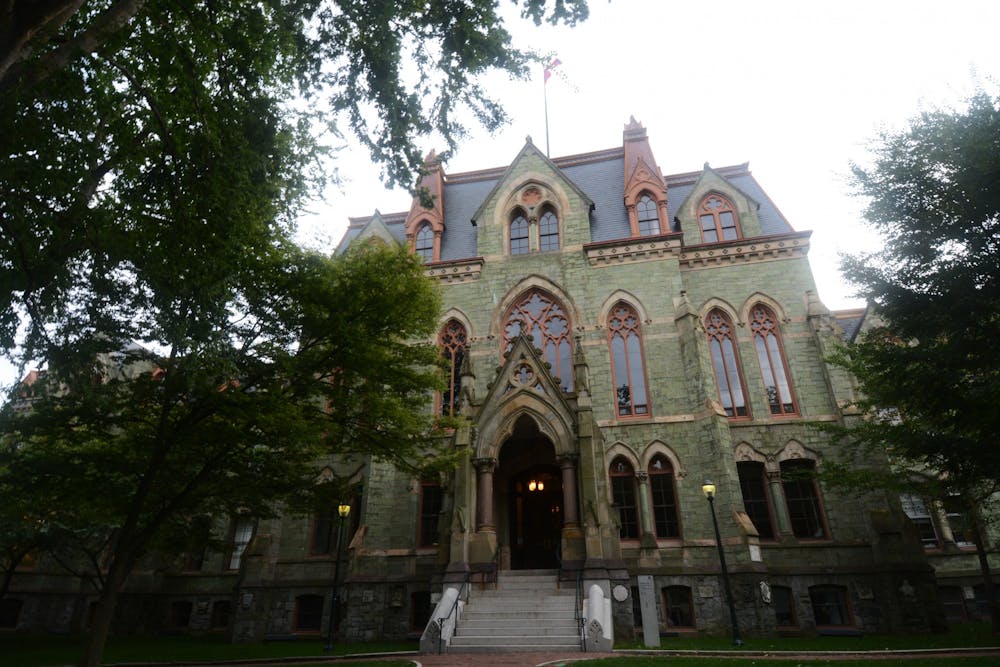Penn is among 16 universities accused of illegally colluding to reduce need-based financial aid, the Wall Street Journal reported.
The lawsuit — which represents five former students who attended several of these schools — alleges that these universities used illegal methods when collaboratively calculating financial need in order to artificially increase tuition costs. The prosecutors claim that over two decades, these universities have shortchanged over 170,000 aid-eligible students hundreds of millions of dollars in tuition.
The other defendants in the suit consist of other Ivy League schools — Brown University, Columbia University, Cornell University, Dartmouth College and Yale University — as well as other elite institutions: the California Institute of Technology, the University of Chicago, Duke University, Emory University, Georgetown University, the Massachusetts Institute of Technology, Northwestern University, the University of Notre Dame, Rice University, and Vanderbilt University.
Penn spokesperson Stephen MacCarthy declined the DP's request for a comment on the pending litigation. Other institutions, such as Columbia, Duke, and Rice also declined to comment, according to the New York Times. A Yale spokeswoman stated that “[Yale’s] financial aid policy is 100% compliant with all applicable laws,” in an email to CNN.
The universities called upon Section 568 of the 1994 Improving America’s Schools Act as protection. Section 568 is an antitrust law which authorizes collaboration on financial aid blueprints if all schools involved are “need blind” — a condition where a student’s ability to pay is not considered in the admission process.
The sixteen schools in the suit are included in the “568 Presidents Group,” whose sole purpose is establishing measures to provide comparable non-federal financial support to students across institutions.
According to the suit, however, nine of these schools that claim to be need-blind actually are not — including Penn.
The complaint claims that several of these nine universities, such as Penn and Vanderbilt, have considered waitlist applicants’ ability to pay, while other schools have encouraged providing “special treatment to the children of wealthy” families — especially those with significant donation history.
RELATED:
Meet M. Elizabeth Magill, Penn's next president — and an avid fly fisher
Penn, Ivy League release statements in support of swimmer Lia Thomas
A dialogue with former Penn admissions officer Karen Crowley is cited in the complaint. Crowley admitted in 2009 that “admissions officers give preference to 'full-paying student[s]' on the waitlist over those who need financial aid,” especially when endowments were down for a particular year.
Additionally, former Penn Associate Dean of Admissions Sara Harberson — who graduated from the Graduate School of Education in 2006 — conceded in May of last year that the university has utilized “tags” to track “high priority” applicants from large donor families as a method of potentially securing donations in the future.
The lawsuit is the newest in a series of admissions-related scandals facing elite institutions. The Operation Varsity Blues scandal implicated more than 50 individuals who allegedly bribed their children into university, and in a separate scandal, former Penn coach and 2009 Wharton graduate Jerome Allen admitted to taking roughly $300,000 in bribes to recruit an unqualified athlete for admission to Wharton.
“Elite, private universities like [the sixteen named universities] are gatekeepers to the American Dream,” the complaint wrote. “Defendants’ misconduct is therefore particularly egregious because it has narrowed a critical pathway to upward mobility that admission to their institutions represents.”









